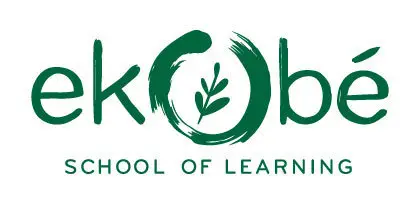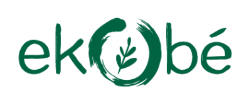
Preschool Costs in San Diego
One consideration that often weighs on the minds of parents is the cost of preschool. San Diego preschool costs can vary, but we’ll answer this question based on our own pricing at Ekobé School of Learning and other market information.
How Much is Preschool in San Diego?
The average cost of preschool in San Diego ranges from $11,000 to $18,000 a year, according to the YMCA Mychildcare database for Central San Diego, and can easily reach $20,000 a year.
At Ekobé School of Learning in Clairemont, San Diego, our average preschool cost/tuition is $15,000-$18,000 per year. The exact tuition number primarily varies based on the number of days per week. You can contact us to get more specific details on our pricing.
What Does Preschool Tuition Include?
Preschool costs include expert teacher instruction, a well-rounded educational program, and daily enrichment activities for your child. Depending on the school, tuition can also include language immersion programs or other educational programs. At Ekobé School of Learning, language programs are automatically part of our curriculum.
As a bilingual preschool, Ekobé offers both Portuguese and Spanish language programs and is the only preschool to offer Portuguese. Our language programs are included in tuition so that all children can benefit from bilingual education and exposure to other cultures.
Meals and snacks aren’t typically included in preschool costs.
Investing in Quality Education
We cannot say enough about investing in quality education, especially at this age. The way that children are encouraged, supported, and challenged at this time in their young lives could impact the rest of their educational future. Parents are encouraged to consider what they value most in their child’s early education, whether that’s independence, cultural awareness, or creative expression (or all of the above!), and then choose the preschool program that prioritizes these same values.
Other factors to consider are how you connect with the teachers and director, the professionalism, cleanliness, and safety of the preschool’s facilities, and the types of learning offered. Be sure to participate in a full, thorough tour before deciding on a preschool for your child.
What Makes Quality Childcare?
A quality childcare and preschool program prioritizes the child and takes full ownership of the programs and curriculums. Of course, quality childcare is also one that provides a physically and emotionally safe environment for children to explore.
What Do Kids Do in Preschool?
Preschool offers a comprehensive learning experience where children develop important skills across various domains such as social and emotional development, enhancing their communication skills, fostering self-awareness, creative expression, and cultural awareness. Preschool also focuses on motor skills development and self-care practices.
You can read more here about what children learn in preschool.
Tips for Choosing the Right Preschool
- Define Your Priorities: Start by defining your priorities and expectations for your child’s preschool experience. Consider factors such as location, hours of operation, preschool cost as compared to your budget, curriculum philosophy, teaching style, teacher qualifications, class size, and the overall learning environment. Understanding your preferences will help you narrow down your options.
- Research and Visit Preschools: Conduct thorough research and create a list of potential preschools in your area. Utilize online resources, parent reviews, and recommendations from friends and family. Once you have a list, schedule visits to the preschools to get a firsthand look at their facilities, observe classrooms in action, and meet with the staff. This will give you a better sense of the environment and the approach they take to early education.
- Observe the Learning Environment: During your preschool visits, pay attention to the learning environment. Look for classrooms that are well-organized, inviting, and equipped with age-appropriate materials and resources. Notice if there is a balance between structured activities and opportunities for free play. Assess the level of engagement among the children and observe how the teachers interact with them.
- Evaluate the Curriculum: Consider the curriculum and teaching approach employed by the preschool. Inquire about the daily routine, activities, and how the curriculum supports various areas of development, including academic, social, emotional, and physical growth.
- Assess Teacher Qualifications and Interactions: The teachers at a preschool play a crucial role in your child’s experience. Inquire about their qualifications, experience, and ongoing professional development. Observe how they interact with the children—do they communicate warmly, engage in meaningful conversations, and provide individual attention? Skilled and nurturing teachers create a positive and supportive learning environment.
- Consider Safety and Facilities: Ensure the preschool meets essential safety standards. Look for proper security measures, childproofed facilities, and adherence to health and safety guidelines. Evaluate the outdoor play area and assess if it is well-maintained and offers opportunities for active play and exploration. Additionally, inquire about their policies regarding emergencies, illness, and allergies.
- Seek Parent Involvement and Communication: Find out how the preschool encourages parent involvement and maintains open communication. Ask about opportunities for parent-teacher conferences, regular updates on your child’s progress, and involvement in school activities or events. A strong partnership between parents and teachers fosters a supportive learning environment for the child.
- Trust Your Instincts: Ultimately, trust your instincts when making a decision. Consider how comfortable you feel with the staff, the overall atmosphere, and how well you believe the preschool will meet your child’s individual needs. Your intuition, combined with the information gathered through research and visits, can guide you in making the best choice for your child.
Frequently Asked Questions About Preschool Cost and Logistics
What is the typical payment schedule for preschool?
While most preschool costs are often quoted as weekly fees, the actual payment schedule for preschools in San Diego (and in most cities) varies from being paid weekly to being paid monthly at the beginning of the month. Many preschools also offer both options for parents to choose from, but this also varies from preschool to preschool so be sure to check with each program.
What age is Pre-K in San Diego?
Pre-K (pre-Kindergarten) programs in San Diego typically start at age four, with preschool programs starting at age two. Ekobé’s preschool program does start at age two and supports children through age four, preparing them for kindergarten. You can learn more here about the preschool age in San Diego.
Is preschool required in California?
No, preschool is not required in California. Children are required to attend school starting at age six (Kindergarten age), but otherwise, parents can choose when to start preschool or Pre-K programs and can decide on their own what structure and schedule is best for their little one.
What does the typical preschool day look like?
While this varies from preschool to preschool, the typical day at Ekobé (a Reggio Emilia preschool in San Diego) starts with an arrival routine that encourages children to say good morning to friends and teachers. The official day starts with free exploration, provocation activities guided by teachers, and project work. We then have a community meeting where the children gather to share thoughts and set expectations for the rest of the day. Next, outdoor activities promote large motor skill development. Before snack time and lunchtime, children are taught proper handwashing skills. Lunch is followed by a designated rest time followed by a cozy reading period as children wake up from their naps. In the afternoon, children have the freedom to choose their last activities of the day. We end the day with dismissal, where children gather their belongings and say goodbye to friends and teachers.
Enrolling Your Child in Preschool
If you’d like to explore enrolling your child in Ekobé School of Learning, contact us for more info.
Ready to move forward? Enroll your child here.




